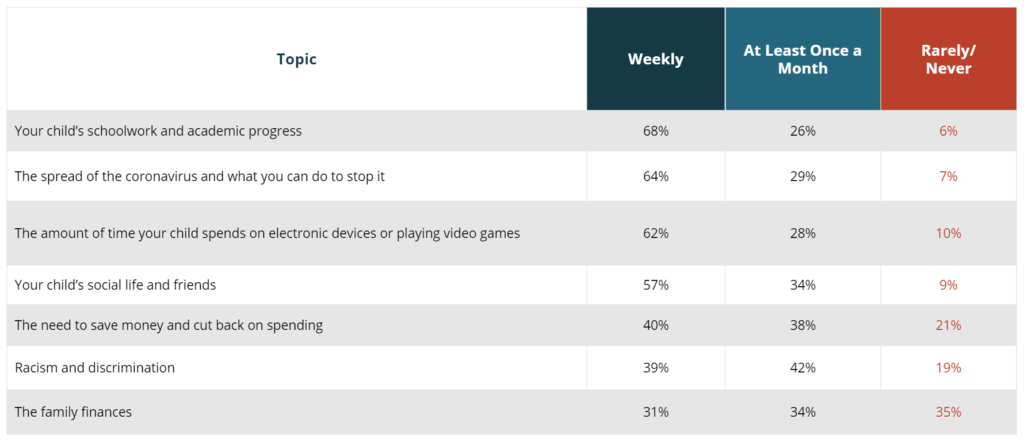featured insight
featured insight

Parents Are Deeply Conflicted About Sending Their Kids to School, And It’s Not Just About Education
One of the largest national studies of parents of school-aged children highlights how concerns about health, academic progress, and job security are shaping educational and lifestyle decisions.
Just over five months into the pandemic in America, people are overwhelmed. COVID-19 has literally reshaped virtually every public system, including the economy, job market, and healthcare. At this point, the impacts have begun to impact one another — and perhaps nowhere more noticeably than in the educational system. Parents and kids around the country are facing the start of a new academic year with little security or certainty about how well their schools will be able to instruct or even protect the kids and adults in their buildings.
The rapid digital transformation forced upon school systems in the spring had varying degrees of successes. The general sense is that education suffered. As a consequence, many parents are facing this new school year with a sense of unease and concern about how to create the greatest possible physical, emotional, social, economic, and academic wellbeing for their kids.
Meeting Street Insights deployed one of the widest-reaching surveys in the market related to how parents and their children are dealing with the pandemic. The study looked at every related detail of decision-making in the pandemic environment, including how they are facing the risk of infection, how they’re managing family finances in the uncertain economic climate, and how those considerations are informing decisions about where and how their children will be educated.
The study results uncover areas of consensus, some surprising trends, and profound divisions between demographics. The places of agreement and disagreement reveal important insights into the priorities and beliefs American parents are using to make decisions for their families.
Download the ebook for an in-depth look at how parents are thinking about the pandemic and its impacts on education and family life now and in the future.
Parents are Having Regular, Meaningful Conversations with Their Kids
Parents are regularly discussing many important, timely topics with their children. Findings show they are more likely to focus more on topics that tend to seem urgent (like homework and the virus) rather than on bigger, more ‘adult’ discussions about topics like finances.
“Listed below are a series of different topics. For each one, please select how often you and your child had a conversation or discussion about that topic over the past couple of months, if at all.“

Study Highlights
- In July 2020, just more than half of parents (52%) reported that at least one family member had lost a job, had hours or shifts reduced, or had taken a pay cut due to the COVID-19 outbreak. An additional 20% of parents worry that they or another family member will lose their job, have their hours reduced, or receive a pay cut.
- Parents spent a good deal of time helping their children with schoolwork during the shutdowns. 20% spent 3 hours or more and 53% spent 1-3 hours.
- For a plurality of parents (45%), these times represent an increase over the time they spent helping their children before the shutdowns.
- 4 in 5 adults were concerned about their children staying on track academically during the shutdowns.
- Almost all parents say they are very concerned their children will become sick with COVID-19 if they return to school in the fall. Across racial, economic, and political demographics, however, the comfort level varies widely with respect to whether or not to send them back into school buildings. For example, 67% of Republicans would be comfortable sending their children back to school compared to 45% of Independents and 42% of Democrats.
Meeting Street Insights conducted an online national survey of parents with at least one child between the ages of five and eighteen (N=1,000). The study was conducted July 3 – July 9, 2020.
What do you need to know? We can help. Get in touch or subscribe to our newsletter.

